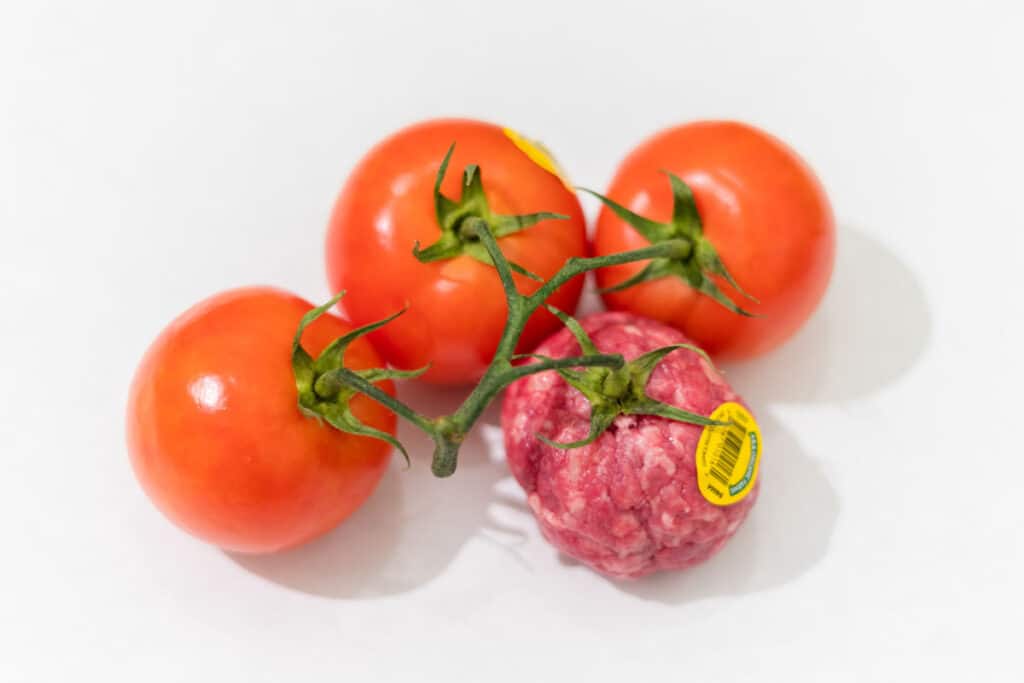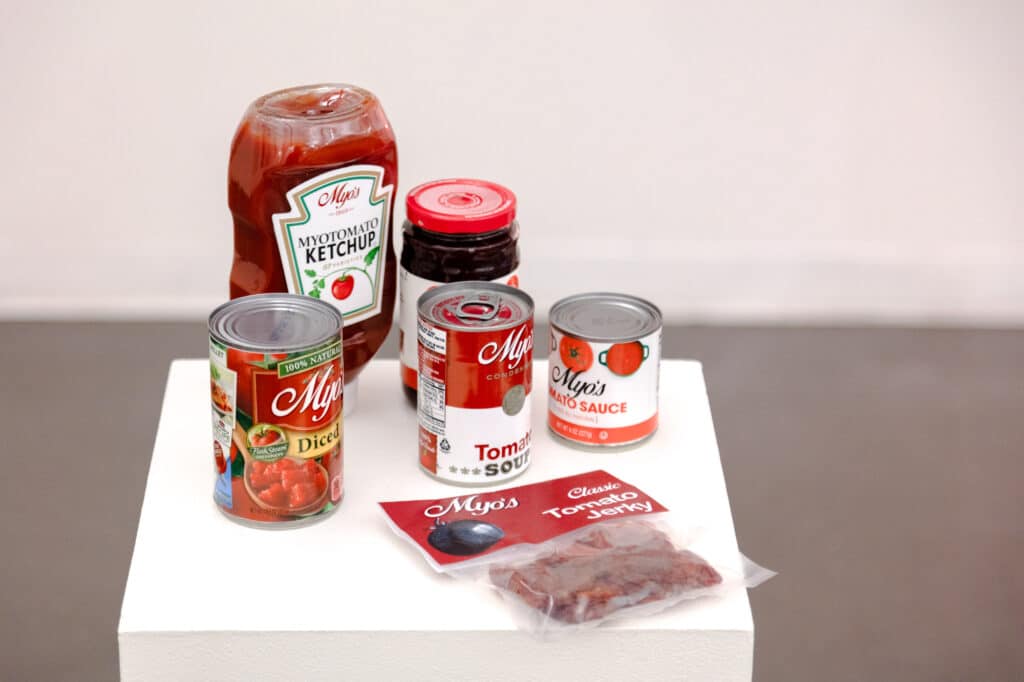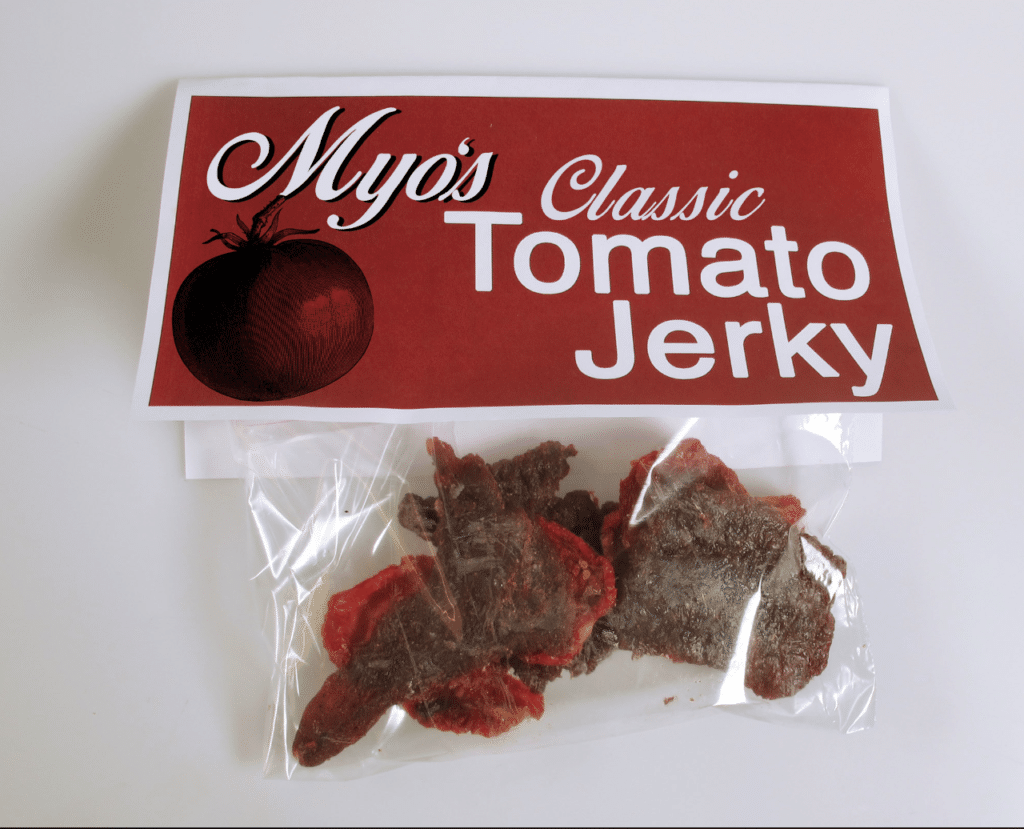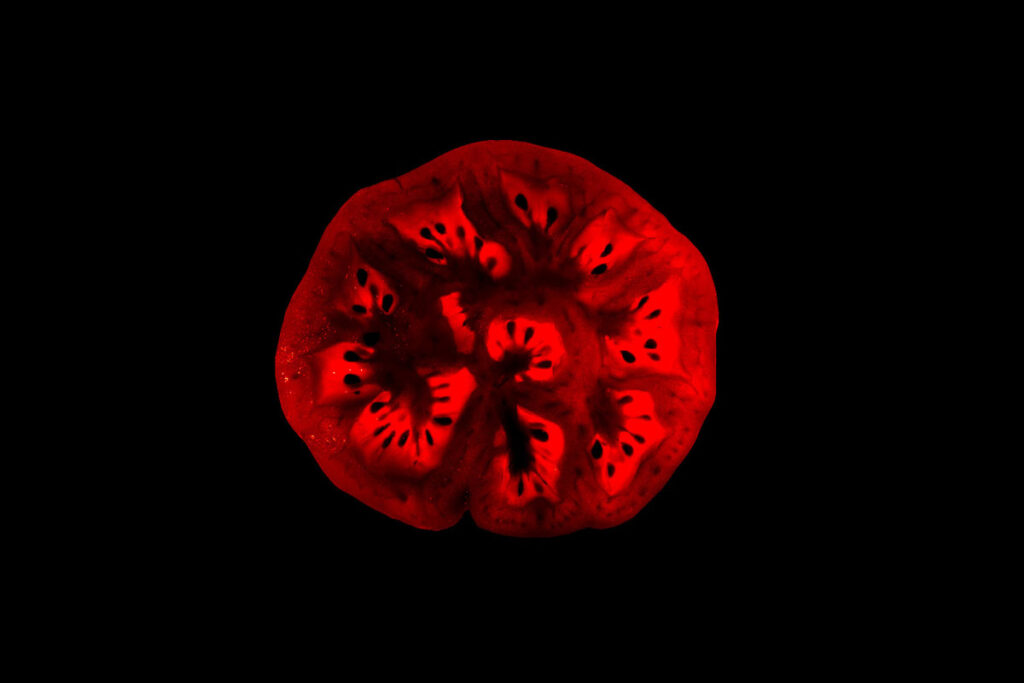Can Beefsteak Tomatoes Replace Steak Itself?

VISION: Bioengineer tomatoes to produce beef protein—reducing the environmental impact of meat consumption.
TEAM: Leman Akpinar, Viktorea Benois, Sebastian Cocioba, Andrew Cziraki, David Hanlon, Marguerite Li, Bo Liu, Steph Mantis, Kirin Pino, Shannon Pollak, Gina Proenza, Tarah Rhoda, Victor Taboada, Darya Warner, and John Wells
SCHOOL: School of Visual Arts
Raising cattle for food produces large amounts of methane that plays a significant part in global warming. Switching to a plant-based diet would be less damaging to the environment, but plants are composed of mainly water and starches, so vegetarians and vegans need to be mindful about their sources of protein.
In the past few years, alternative meat companies such as Impossible Foods have bioengineered ingredients to give plant-based products the look, feel, taste, and smell of meat. In 2016, students from the School of Visual Arts (SVA) envisioned the opposite: putting meat proteins into vegetables themselves.
With a touch of irony, the students bioengineered beefsteak tomatoes to express cow proteins—giving a new twist on “beefsteak.” By inserting the gene for cow myoglobin into the tomato’s genome, they were able to grow a new hybrid that mixed a tomato with cow genes. At the bioart lab at SVA, the team grew a tangle of MyoTomato tomato vines that climbed 6-feet high.
The students bioengineered beefsteak tomatoes to express cow proteins—giving a new twist on “beefsteak.”
In conjunction with the project, the team developed a series of speculative supermarket products. Appropriating Andy Warhol’s Campbell’s Soup Cans, they created MyoTomato soup, ketchup, gazpacho, and jerky. They even included recipes.
In their sci-fi video describing the project, the narrator says, “This breakthrough creation caused quite the stir. It seems not everyone was in favor of this amazing scientific achievement.” To which a protester in the video responds, “GMOs are dumb, and stupid, and poison.”




